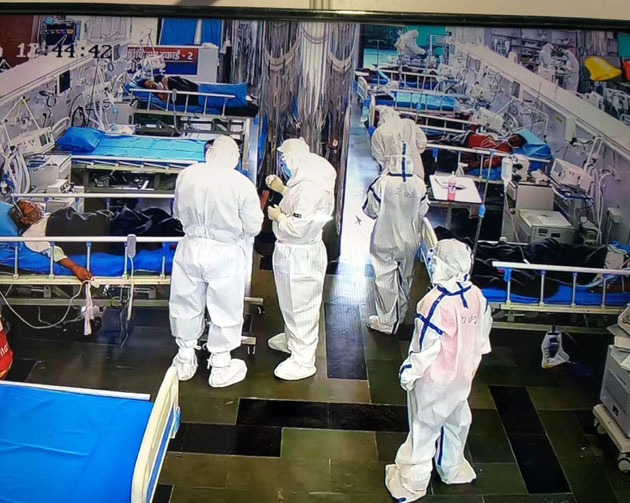The BA.2 sub-lineage of the Omicron variant has made up over one-third of new Covid-19 infections in the US, coinciding with the allergy season that may complicate symptoms and delay timely distinction.
The BA.2 variant accounted for about 34.9 per cent of new Covid-19 infections in the country in the week ending March 19, according to the latest data of the US Centers for Disease Control and Prevention (CDC).
This data went up from 22.3 per cent a week prior, and 15.8 perc ent two weeks before, Xinhua news agency reported.
The BA.2 variant is steadily gaining its ground in the country, with infections almost doubling each week in February, the data showed.
In the northeastern part of the country, BA.2’s prevalence has surpassed 50 per cent in the latest week.
With Covid-19 cases rising in parts of Europe and Asia due to BA.2’s rapid spread, scientists worry that the variant may soon push cases up in the US.
Anthony Fauci, the country’s top infectious disease expert, said he expects “an uptick in cases” due to BA.2, but not necessarily a massive surge like other variants have caused.
Fauci said the new strain is about 50 to 60 per cent more transmissible than the first Omicron strain, adding that it could take over as the dominant strain in the US.
Adding to the complication is the start of allergy season. Experts are concerned about allergy season because some early symptoms of Covid-19 resemble allergies — runny or stuffy nose, or a cough and fatigue.
It may cause delay in distinguishing between the coronavirus and pollen allergies.
Meanwhile, experts cautioned the decline in Covid-19 case counts from peak high in early January may not reveal the full picture of the pandemic.
Keri Althoff, a researcher at Johns Hopkins Bloomberg School of Public Health, said CDC case counts may underestimate the true numbers because some people are no longer getting tested, and some others are testing at home and not reporting the results.
Also, not every specimen is genetically sequenced to determine the variant, she added.
Health officials and experts stressed Covid-19 vaccines and boosters remain the best ways to prevent serious illness from the virus.


